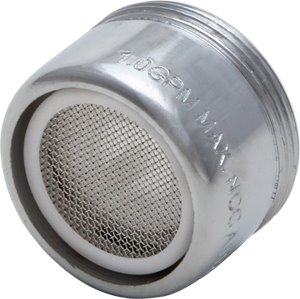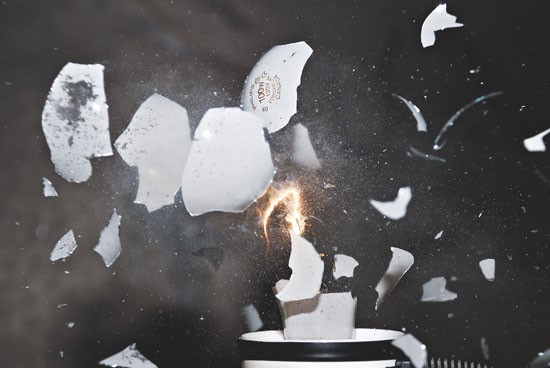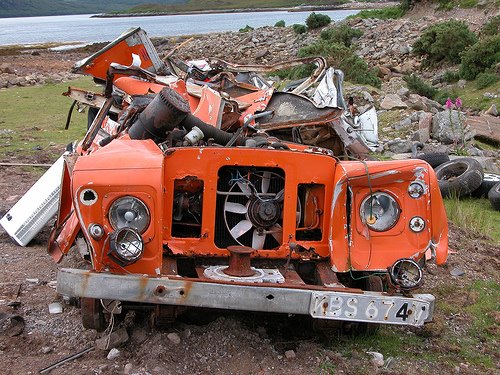
I was trying to do the dishes last night and I noticed that my water pressure had been in a decline over the last couple of weeks. The I remembered that I hadn't disassembled and cleaned my aerator in a couple of months. Well, once I had the thing taken apart, it was pretty clear that my congested aerator was the root of my water pressure problem. I live in a house that's nearly 100 years old and the plumbing and most of the plumbing fixtures are original to the house. This is a mixed blessing at the best of times, but when it comes to maintenance I'm rarely grateful that I live in what is by Florida standards, an ancient building.
Metal pipes shed corrosion and mineral deposits and it doesn't matter how old they are. Although as my experience shows; the older the pipes, the more voluminous the material shed. Those deposits can't hurt you and I'd rather have the extra iron in my diet than the alternative to a metal pipe, PVC.
Most faucets, and kitchen faucets in particular, have an aerator on the end of them. This aerator performs two primary and one secondary function. It's primary job is to add air to a stream of water and this does two things. Aerated water won't splash as much when the stream hits something and aerated water has a greater volume. That greater volume means that even though you're using less water to wash dishes in the sink, it's not noticeable.
All aerators have a screen in them, and that screen is what gets clogged with the shed material from your pipes. All aerators need to be flushed out from time to time and if you have never performed this little bit of maintenance, you'll be amazed at the improvement in your faucet's performance.
First, wrap some tape around the end of your kitchen faucet to protect the finish. Then get a pair of channel lock pliers and unscrew the aerator. Remember: righty tighty, lefty loosey. Once it's unscrewed, turn on your tap and hold the aerator upside down in the stream of water. What you're doing is back flushing the screen in the aerator and all of the captured mineral deposits ought to become dislodged and rinsed away after a minute or so.
Then reassemble your aerator and reattach it to the end of your faucet. Tighten everything back up, remove the tape and you're done. Easy as pie.


